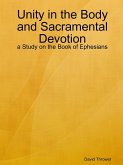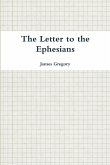The main focus of this work is to view Paul's letter to the Ephesians in its entirety, to see how each section fits into the total correspondence, and to understand the logical sequence of topics. Dividing chapters into groups of 7 Greek sentences produces some surprising topical breaks. Much Bible study and discussion focuses on Bible verses, which typically are neither complete sentences in English nor in Greek. Topical units are often viewed to coincide with Bible chapters or with text breaks identified by translator inserted subtitles. The current text of Ephesians is presented in such a way that Greek sentences are easy to recognize. Also, topical units have 7 Greek sentences each, which happens to produce logical topics. Leonard discovered the pattern of 7's in about 1973 but did not publish. "Chiasmus is a balance of words or phrases in which the beginning is balanced by the ending and the middle parts balance each other, making patterns like ABBA and ABCCBA. The chiasmi in the present work are all referred to as patterns of 7, ABCDCBA. Chiasmi occur frequently in the Bible, both Old Testament and New Testament. Sometimes they disappear in our English translations; e.g. John 1:1b reads "and the word was with God, and the word was God." The Greek word order is: "and the word was with God, and God was the word." This pattern of 7 is broken down into 3 areas beginning with people who live their lives without a clear identity are, in spite of accomplishments, never satisfied. Often they feel driven to accomplish more and more. Sometimes, these people find relational niches based on their accomplishments, but the ties are often weak. People who don't know who they are and lack accomplishments, are often prey for all sorts of weird relationships in which they either are victims or victimizers. Ephesians has it right - who I am, what I do, and where I fit - and in the right order.
Bitte wählen Sie Ihr Anliegen aus.
Rechnungen
Retourenschein anfordern
Bestellstatus
Storno









